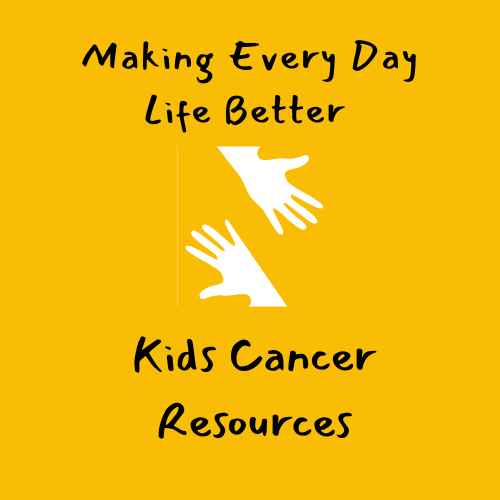The Importance of Pediatric Trials in Advancing Cancer Treatment
Pediatric cancer poses unique challenges that differ significantly from adult cancers. Because children’s bodies and diseases behave differently, treatments that work for adults may not be suitable or safe for younger patients. Pediatric trials are essential in discovering therapies specifically tailored to these young warriors, offering hope for better outcomes.
Clinical trials for pediatric cancer focus on testing new drugs, treatment combinations, and approaches to improve survival rates while minimizing long-term side effects. These trials play a crucial role in advancing medical knowledge and turning hope into tangible healing.
Understanding the Role of Pediatric Trials
Pediatric trials serve several vital purposes:
– Evaluate the safety and efficacy of new treatments in children.
– Determine optimal dosages that children can tolerate.
– Assess long-term effects of therapies unique to pediatric patients.
– Develop targeted therapies based on the biology of childhood cancers.
With pediatric cancer being a rare but devastating diagnosis affecting thousands of families globally, these trials are the bridge between cutting-edge research and everyday care.
How Families Can Navigate the Pediatric Trials Journey
Facing pediatric cancer is an emotional and overwhelming experience. Adding clinical trials to the equation can seem daunting. However, understanding the process and available resources empowers families during this difficult time.
Steps to Consider Before Enrolling
1. **Gather Information**: Speak with your child’s oncologist about available pediatric trials that match your child’s diagnosis.
2. **Understand Eligibility**: Each trial has strict eligibility criteria—know these to avoid unnecessary stress.
3. **Ask Questions**: Clarify the trial’s purpose, procedures, risks, benefits, and how it differs from standard treatment.
4. **Evaluate Logistics**: Consider travel, time commitment, and support systems necessary to participate effectively.
5. **Seek a Second Opinion**: Consulting another pediatric oncologist can provide broader perspectives on clinical trial options.
Where to Find Pediatric Trials
Several reputable sources list pediatric trials, including:
– The National Cancer Institute’s clinical trials database.
– Pediatric oncology centers and hospitals.
– Nonprofit organizations focused on pediatric cancer research.
These platforms provide up-to-date trial availability and detailed descriptions, making it easier to make informed decisions.
Benefits and Risks of Participating in Pediatric Trials
Understanding both the perks and potential downsides of pediatric trials is critical before committing.
Potential Benefits
– Access to cutting-edge treatments not available outside the trial.
– Close monitoring and care from specialized medical teams.
– Contributing to scientific knowledge that could help future children.
Many families find purpose in being part of the solution, helping improve therapies for others down the road.
Potential Risks
– Unknown side effects or limited data on safety.
– Additional appointments and testing that can be physically and emotionally taxing.
– Possibility the treatment may not be effective.
Discussing these risks openly with medical professionals ensures fully informed participation.
Innovations and Success Stories in Pediatric Trials
Pediatric trials have already led to remarkable advances in childhood cancer therapies.
Targeted Therapies and Immunotherapy
Recent pediatric trials have explored targeted treatments that attack cancer cells precisely without harming healthy tissue. Immunotherapy trials harness the child’s immune system to fight cancer more effectively, dramatically improving survival rates for some difficult-to-treat cancers.
Real-Life Impact
– Survival rates for acute lymphoblastic leukemia in children have risen to nearly 90%, largely due to clinical trial findings.
– Trials for neuroblastoma have introduced new drug combinations that extend remission periods.
– Patient stories highlight not only medical success but emotional growth for families, emphasizing resilience.
These examples underscore the transformative power of pediatric trials and the hope they generate worldwide.
Supporting Little Warriors: How Communities and Caregivers Can Help
The journey through pediatric cancer trials is never walked alone. Support networks are vital.
Practical Support for Families
– Emotional counseling and peer support groups.
– Financial assistance for travel and treatment-related expenses.
– Educational resources to help children keep up with school.
Hospitals and nonprofits often provide these services to ease the burden on families.
Advocating for Pediatric Trial Participation
Raising awareness about the importance of pediatric trials helps accelerate research funding and enrollment. Caregivers and advocates can:
– Share information socially to destigmatize clinical trial participation.
– Encourage healthcare providers to discuss trial options proactively.
– Fundraise or volunteer for pediatric cancer research organizations.
Community involvement magnifies the impact of scientific progress and fosters a culture of hope.
Key Insights About Pediatric Trials in Pediatric Cancer
Navigating pediatric trials requires knowledge, courage, and support. Keep in mind:
– Pediatric trials are designed with children’s unique needs in mind, offering tailored approaches to treatment.
– Transparent communication with medical teams is essential to making informed decisions.
– Although risks exist, the trials offer access to promising therapies and contribute to future breakthroughs.
– Families benefit greatly from community and institutional support throughout the process.
If you are exploring pediatric trials for your child or want to learn more about available options, consulting with experts and trusted resources is the next step.
For personalized guidance and support navigating pediatric trials, visit khmuhtadin.com to connect with specialists dedicated to helping little warriors and their families hold onto big hope.



